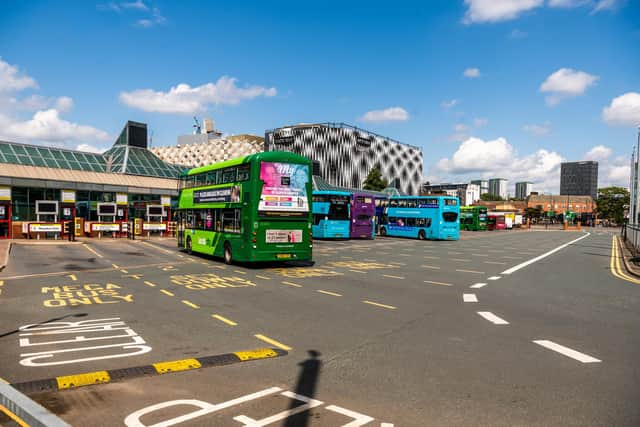Leeds buses: Arriva and First blame 'patchy technology' and 'GPS blackspots' for services disappearing from display boards
“Ghost buses”, where a service appears to be on its way but then disappears from real-time timetables and then never arrives, are a huge bugbear for passengers.
Now, operators Arriva and First have explained why the phenomenon happens, with faulty 4G technology blamed for misleading information.
Advertisement
Hide AdAdvertisement
Hide AdBoth called for investment to be made in the network to improve the issue, which was discussed at a Leeds Council scrutiny board on Thursday morning.


Kayleigh Ingham, commercial director for First Bus in West Yorkshire, said mistakes were occasionally due to “manual” issues, which she said the firm had worked hard to improve in recent months.
But she added: “The issue that’s less within our control is connectivity challenges.
“At the moment the technology is patchy and we’ll require extensive 5G upgrades across our network to ensure an ongoing connection between our buses and the depot.
Advertisement
Hide AdAdvertisement
Hide Ad“At the moment our buses are sending GPS data back to our depot about every 40 seconds.
“Sometimes we hit blackspots and that can result in this ghost bus phenomenon.”
Dwayne Wells, Arriva’s commercial manager, said that human delays in processing information could sometimes result in faults on the digital timetables.
But he added: “It is usually due to blackspots, or sometimes the buses terminating and the system predicting where they’re going to be.
Advertisement
Hide AdAdvertisement
Hide Ad“But there’s a growing focus to improve the accuracy because it’s clearly important to our customers.”
Mr Wells said the issue “tends to be in remote rural locations”.
He added: “For example, on the roads up to Wetherby where the signal is less (good) than it would be in an urbanised area such as Leeds.”